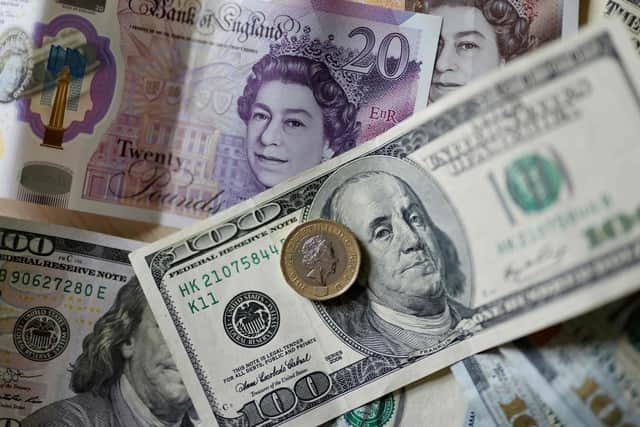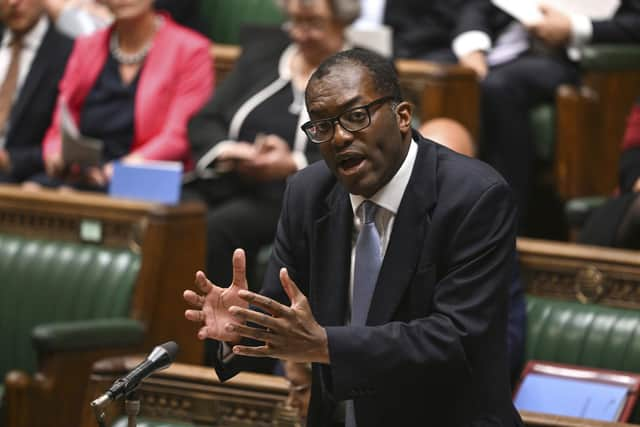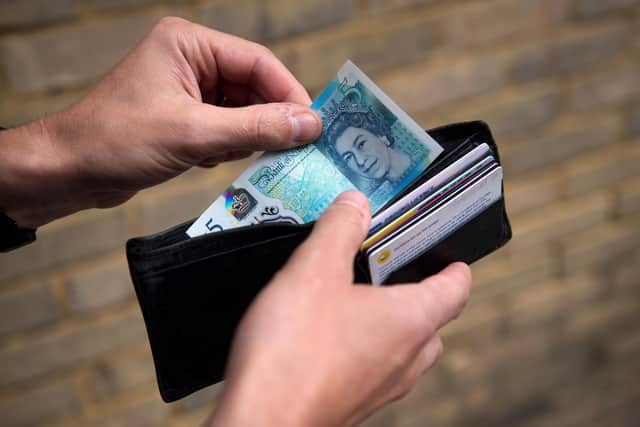Sterling collapse: Five experts explain why the Pound is falling against the Dollar and the Euro
Here’s what a selection of experts say about it.
Alarm bells will be ‘ringing’
The plunge in the value of the pound “will set alarm bells ringing at the central bank,” Senior Economist Dan Hanson wrote on Bloomberg Economics. “If the drop sticks, the BOE’s next move, which could easily come in an emergency meeting, will likely be a 100 basis-point hike.”


Why financial markets have reacted badly
"It’s hard to overstate how poorly Kwasi Kwarteng’s so-called “fiscal event” has been received by financial markets, writes Toby Nangle on ft.com. "Nothing in gilt markets in the past 35 years — not the UK’s ejection from the Exchange Rate Mechanism, 9/11, the financial crisis, Brexit, Covid or any Bank of England move — compares with the price moves in reaction to the chancellor’s mini-budget."
Why the price of beer could go up
Advertisement
Hide AdAdvertisement
Hide AdThe price of beer could go up, as a consequence of the fall in the value of the pound according to Paul Davies, chief executive officer at Carlsberg Marston’s Brewing Company.


He told BBC Radio 4’s Today programme that the drop was “worrying” for the British beer industry, which imports beer and hops from overseas.
Asked if the value of the pound mattered, he said: “Yes it does, many of the hops used in this country are actually imported and a lot of them, particularly for craft brewers, are imported from the States, so changes in currency is actually worrying for industry, for sure, and then of course people drink a lot of imported beers from Europe, and the euro vs the pound is also something we’re watching very closely at the moment.
“Of course things will rise, I would say as an industry we’re generally using British barley and we’re using a lot of British hops, but of course if you’re drinking double IPA that requires a lot of Citra hop and other hops from the States, and at some point that is going to have to be passed through to both the customer and the consumer if prices are this volatile.”
Why Bank of England should be worried


Sir John Gieve, former deputy governor of the Bank of England, said he would be worried if he was still in the job as sterling falls against the dollar.
He told BBC Radio 4’s Today programme: “I think I would be worried.
“The bank, and indeed the Government, have indicated that they are going to take their next decision in November and publish forecasts and, so on that point, the worry is that they may have to take action a bit sooner than that.”
Income tax cuts ‘fatal step too far
Writing in The Telegraph, Ambrose Evans-Pritchard said "Permanent cuts in income tax are a fatal step too far. The fiscal message of slashing property tax in these financial circumstances is scarcely better." He called for the tax cuts announced on Friday to be reversed.
Advertisement
Hide AdAdvertisement
Hide Ad"This unflagged largesse injects demand into an economy already running at full capacity, constrained by a labour shortage and supply chain disruptions. It draws forward consumption in a nation living beyond its means, with a chronically low savings rate and a structural current account deficit of 4pc of GDP (8.3pc this year).
"The gamble is more like early Reaganomics but without the ‘exorbitant privilege’ of the world’s reserve currency and without America’s benchmark creditor status. Note too that US public debt was at a century-low of 31pc of GDP (thanks to the Great Inflation) when Ronald Reagan took power in 1981."
Comments
Want to join the conversation? Please or to comment on this article.